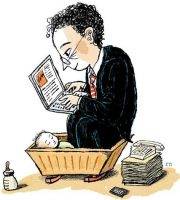September 6, 2016
Significant rise in the length of the German working week, study finds 0
 It’s not just British workers who are experiencing the creep of longer working weeks and in spite of the EU’s Working Time Directive. A report published last week in the German newspaper Zeit based on information supplied by the German Federal Ministry of Labour in the Bundestag found that Germans now work significantly longer hours than they did twenty years ago. According to the report, the number of people in Germany working more than 48 hours per week grew by around a third in the twenty years between 1995 and 2015, up from 1.3 million to 1.7 million. The report found that a growing number of Germans are now working in the evening and at weekends and outside traditional working hours. One in four Germans now work routinely at weekends. The report also found that the number of people in work grew over the period by 2 million to 32 million while the overall German population barely increased at all during the two decades to 2015.
It’s not just British workers who are experiencing the creep of longer working weeks and in spite of the EU’s Working Time Directive. A report published last week in the German newspaper Zeit based on information supplied by the German Federal Ministry of Labour in the Bundestag found that Germans now work significantly longer hours than they did twenty years ago. According to the report, the number of people in Germany working more than 48 hours per week grew by around a third in the twenty years between 1995 and 2015, up from 1.3 million to 1.7 million. The report found that a growing number of Germans are now working in the evening and at weekends and outside traditional working hours. One in four Germans now work routinely at weekends. The report also found that the number of people in work grew over the period by 2 million to 32 million while the overall German population barely increased at all during the two decades to 2015.



































